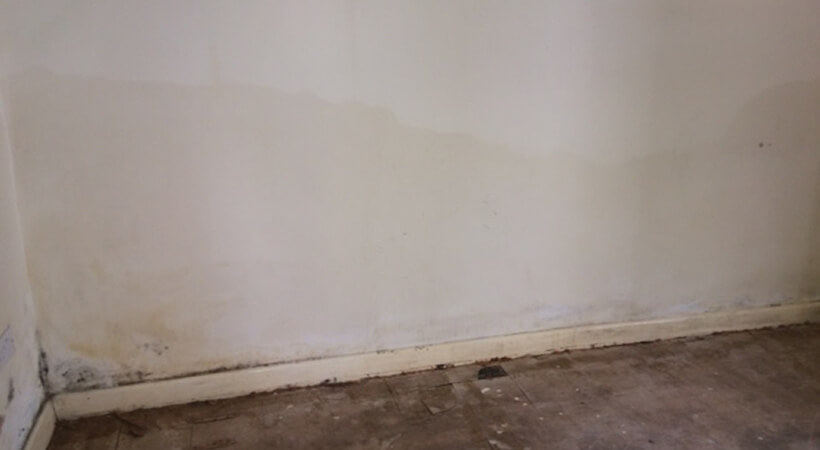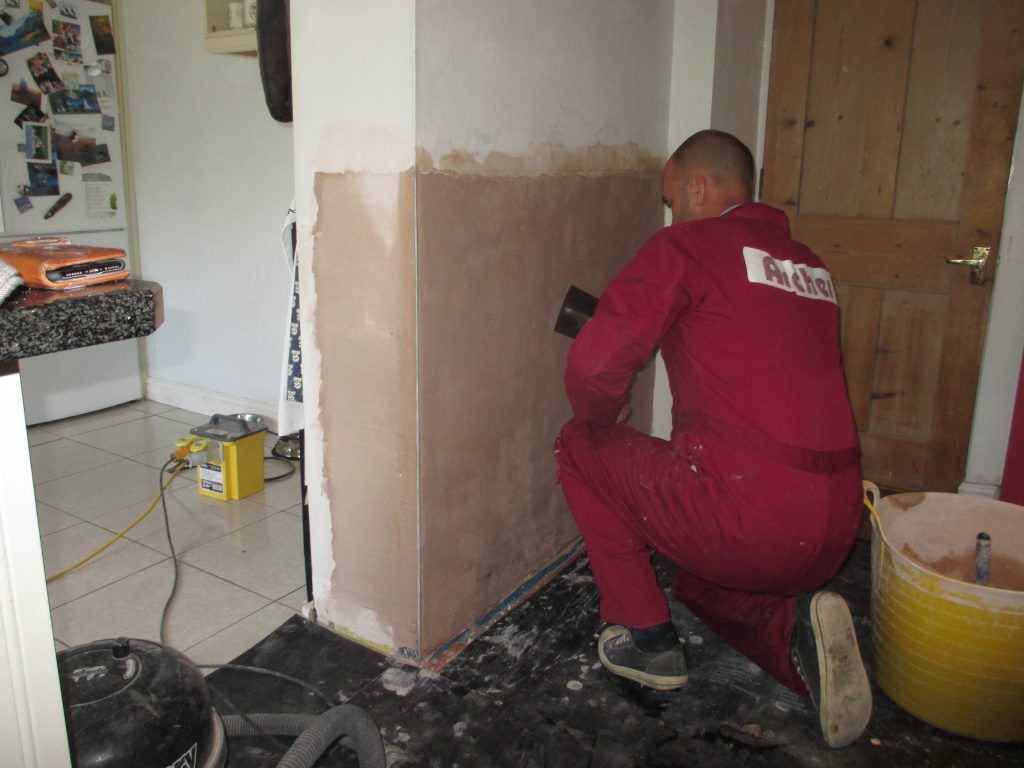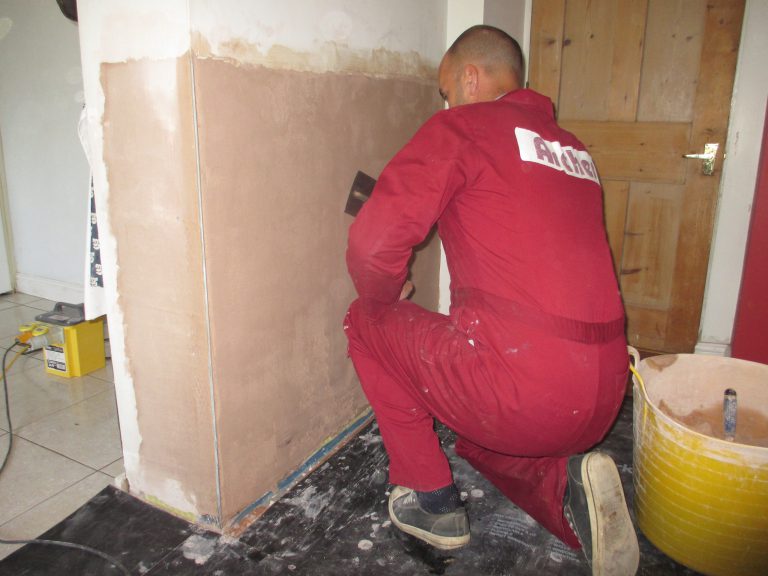A QUOTE
- option 1


Rising Damp within a building is triggered by water in the ground that rises up through to the bricks and mortar by capillary action. If not treated, dampness can trigger wood to rot and cause corrosion to cavity wall ties and also impact your health and wellbeing (it increases the likelihood of respiratory illness in homes).
What is rising damp?
Rising damp becomes apparent itself as a horizontal tide marking on the wall, below which there will be discolouration, patches, peeling wallpaper and even white salt stains which have been drawn out of the brickwork via the water. We are your one-stop-shop for rising damp solutions.
Damp treatment
We use several alternative systems and solutions for curing and preventing rising damp. One of the most effective and economical solutions is achieved by injecting a silicone based chemical into the wall through a series of small holes.
When it dries, a water-repellent barrier is left within the wall. It is ususally necessary to remove some of the internal plaster contaminated with salts from the rising damp and reinstate with a salt resistant plaster which will allow the moisture in the wall to dry out naturally.

SERVICE

RELIABLE

GUARANTEE
Why damp proofing?
Typical signs of rising damp rather than other damp problems are a ‘tide line’ of yellowish or brownish staining or blown plaster in the lower area of your wall above your skirting board. You also might have damp or rotting skirting boards or flooring.
Carrying out a quick-fix for rising damp, (e.g. repointing or painting over the damp) will just make the job more expensive in the long term and will mean you need to do the job all over again at a later date.
A damp proof course is a waterproof barrier that spans the width and length of your wall. It stops water from the ground rising up through the wall through capillary action.
Example Images
Images 1 and 2 = Rising damp was identified within the old kitchen walls of a domestic dwelling in Goddards Green in Sussex. Following the removal of contaminated plaster, the installation of a new horizontal chemical damp proof course, using the Triton Chemicals Ltd system of damp proofing with a solution of Tri-cream (Silane/Siloxane) and advanced DPC injection cream was used. This was injected under pressure to the affected walls followed by the reinstatement of plaster incorporating a water proofer within the sand and cement render backing coat.


